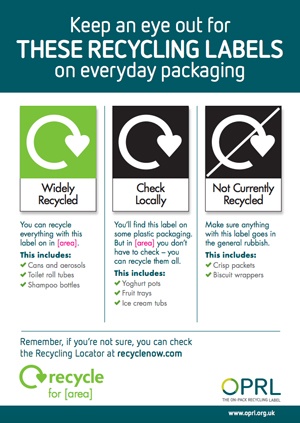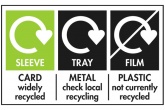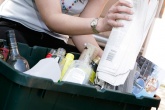LARAC buy-in to recycling label scheme to offer public more consistent messaging
LARAC, the body representing local authority recycling officers, has joined the board of OPRL, the UK’s packaging recycling label scheme – the third industry body to buy into the scheme in the past year.

The scheme was launched in 2009 and until November last year was owned solely by the British Retail Consortium and operated as an arm’s length company.
LARAC’s involvement, follows on from the Alliance for Beverage Cartons and the Environment (ACE UK) becoming joint-owners last November, and plastic recycling trade association RECOUP joining last December. The growing ownership reflects the scheme’s aim of developing greater collaboration to promote greater and more effective recycling of packaging materials.
OPRL and LARAC hope that by providing a more consistent form of communication to the public, to go with WRAP’s consistency framework and recycling guidelines (released yesterday), positive results will be seen in the quality and quantity of recycling collected by councils. OPRL says the new ownership arrangement will ‘enable closer co-ordination of initiatives… and promotion of the OPRL scheme with local authorities across the UK’.
Joint working will help councils’ yields and budgets
Commenting on LARAC taking up joint-ownership of the company, LARAC Chair Andrew Bird said: “This is a powerful development as local authorities and business come together to maximise effective recycling.
“By getting a clear and consistent recyclability message to the consumer both on-pack and in council communications to householders we have the best chance of increasing both volume and quality of councils’ recycling collections. We’ve started some joint working and I’m sure much more is to come as we all seek to make the best use of shrinking budgets.”
Jane Bevis, Chair of OPRL Ltd, added: “This is a significant step in ensuring consistency of messaging, responding to WRAP’s recent report. We’re delighted that our links with other organisations promoting recycling continue to strengthen, and are particularly excited to bridge the public/private sector divide. It’s essential that customers hear consistent and clear messages, saving council tax costs and delivering significant environmental benefits against a background of public spending cuts.”
New poster set to help councils link messages
As part of LARAC’s collaboration with OPRL, the association has produced a range of posters explaining how local collections match the on-pack labels.

Lee Marshall, Chief Executive of LARAC and OPRL Board member, said: “With communications budgets under increasing pressure, making the link with recycling labels used on hundreds of thousands of products is a no brainer. We know 7 in 10 people recognise the labels. Now we just need to build confidence so all of them act on that advice.
“The On-Pack Recycling Labels give people the right nudge as they dispose of packaging. Explaining which types of packaging carry which labels – and what you should do – in these adaptable posters reinforces that nudge. We believe this joined-up approach to messaging will help councils increase recycling rates, avoid costly landfill taxes and reduce rejection rates.”
More information about LARAC and OPRL can be found on the organisations’ websites.







